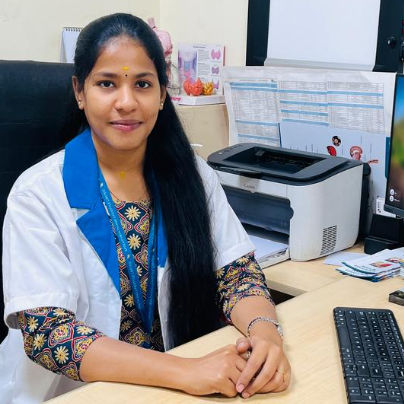Understanding Balanced Diet and Its Benefits
Understand what a balanced diet is and how it supports overall health. Learn about the essential nutrients your body needs and the benefits of maintaining a nutritious, well-rounded eating plan.


Eating a balanced diet is one of the simplest yet most powerful ways to maintain good health. But what exactly does a balanced diet mean, and why is it so important? In this article, we’ll break it down in simple terms, discuss its benefits, and provide practical tips to help you make healthier food choices.
What is a Balanced Diet?
A balanced diet means eating a variety of foods in the right proportions to provide your body with all the essential nutrients it needs to function properly. These nutrients include:
Carbohydrates (for energy)
Proteins (for muscle and tissue repair)
Fats (for energy and cell function)
Vitamins & Minerals (for immunity and overall health)
Fiber (for digestion)
Water (for hydration)
No single food provides all these nutrients, so a mix of different foods is necessary for good health.
Consult a Top Nutritionist
Why is a Balanced Diet Important?
Eating a balanced diet has multiple health benefits, including:
Boosts Energy Levels – The right mix of carbs, proteins, and fats keeps you active throughout the day.
Supports Immune System – Vitamins (like C and D) and minerals (like zinc) help fight infections.
Maintains Healthy Weight – Prevents obesity and related diseases like diabetes and heart issues.
Improves Digestion – Fiber-rich foods keep your gut healthy and prevent constipation.
Strengthens Bones & Muscles – Calcium, vitamin D, and proteins support bone density and muscle growth.
Enhances Mental Health – Omega-3 fatty acids and B vitamins improve brain function and mood.
Components of a Balanced Diet
Below are the various components of a balanced diet,
1. Carbohydrates (Energy Providers)
Good sources: Whole grains (brown rice, oats, whole wheat), fruits, vegetables.
Avoid: Refined carbs (white bread, sugary snacks) as they cause energy crashes.
2. Proteins (Body Builders)
Good sources: Lean meats, fish, eggs, beans, lentils, nuts, dairy.
Tip: Vegetarians can combine dal + rice or roti + curd for complete protein.
3. Fats (Essential but in Moderation)
Good fats: Avocados, nuts, seeds, olive oil, fatty fish (salmon).
Bad fats: Fried foods, processed snacks, trans fats (found in packaged foods).
4. Vitamins & Minerals (Immunity Boosters)
Vitamin C: Citrus fruits, bell peppers, broccoli.
Vitamin D: Sunlight, eggs, fortified milk.
Calcium: Milk, yogurt, leafy greens.
Iron: Spinach, lentils, red meat (prevents anemia).
5. Fiber (Digestive Health)
Sources: Whole grains, fruits (apples, bananas), vegetables, nuts.
6. Water (Hydration is Key!)
Drink at least 8-10 glasses daily to flush out toxins and keep skin healthy.
Common Mistakes in Diet
Below are the common mistakes done by many people in case of diet,
Skipping Breakfast – Leads to overeating later.
Too Much Processed Food – High in salt, sugar, and unhealthy fats.
Not Eating Enough Fruits & Veggies – Missing essential vitamins.
Overeating Healthy Foods – Even nuts and oils should be consumed in moderation.
Tips for a Balanced Diet
Below are the tips for a balanced diet,
Eat a Rainbow – Different colored fruits and veggies provide different nutrients.
Portion Control – Use smaller plates to avoid overeating.
Limit Sugar & Salt – Check food labels for hidden sugars and sodium.
Cook at Home – Healthier than eating out or ordering junk food.
Stay Consistent – Small, sustainable changes work better than extreme diets.
When to Seek Professional Help?
If you struggle with:
Weight management
Digestive issues
Diabetes, cholesterol, or blood pressure
Food allergies or deficiencies
Consider consulting a nutritionist or dietitian for a personalized diet plan.
Need Help with Your Diet?
You can book a consultation with Apollo24|7’s expert nutritionists to get a diet plan tailored to your health needs.
Conclusion
A balanced diet is not about strict restrictions but about nourishing your body with the right foods in the right amounts. By making small, mindful changes, you can improve your energy, immunity, and overall well-being.
Consult a Top Nutritionist
Consult a Top Nutritionist
Dr. Sasikamalam
General Practitioner
1 Years • MBBS
COIMBATORE
Apollo Sugar Clinic Coimbatore, COIMBATORE

Dr. Ramalinga Reddy
General Physician
5 Years • MBBS MD General medicine
Bengaluru
PRESTIGE SHANTHINIKETAN - SOCIETY CLINIC, Bengaluru
Dt. Ila Sharma
Clinical Nutritionist
18 Years • Master in food & Nutrition
Gurugram
VIPUL GREENS - SOCIETY CLINIC, Gurugram

Dt. Prabhavathy
Clinical Nutritionist
8 Years • Msc Human Nutrition & Nutraceuticals
Madurai
Apollo Sugar Clinics, Madurai, Madurai
Ms. Bhavana Shetty
Dietician
7 Years • DDHN & Masters in Clinical Nutrition & Dietetics
Bangalore
Apollo Sugar Clinic, Seetha circle bangalore, Bangalore




